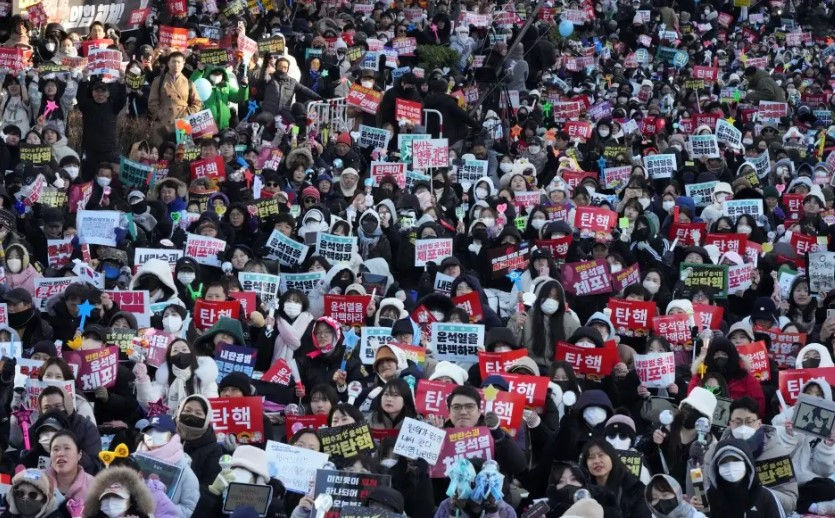Black country music ‘renaissance’ forces genre to reckon with racial history
- Wonjeong Hong
- Feb 4
- 4 min read
Source
Article Summary
The rise of black country music, stimulated by the success of Beyoncé's "Cowboy Carter," spurred racial tensions and conversation around the genre's history. After Beyoncé received aggressive and negative responses after performing at the 2016 Country Music Association (CMA) Awards, she became the first Black woman to top the Hot Country Songs chart on Billboard. She also performed during halftime of the Christmas Day match-up between the Houston Texans and Baltimore Ravens, which featured Black cowboys and the first Black rodeo queen.
Alice Randall, an award-winning songwriter and novelist, quoted how "Cowboy Carter" played a big part in the Black country renaissance. Many musicians and historians highlighted how key country instruments, such as the Banjo, have derived from African instruments the enslaved people brought to North American colonies since the album was released.
Randall pointed out how the existence of the Lack Cowboy is significant to the Black Country Renaissance and mentioned that it is a great time to remember that the relationship between Black people and country music is not a new trend that recently emerged but part of a history that has been ongoing for 400 years.
Another artist who made history in the Black country Renaissance is a Virginia native, Shaboozey, who was also featured on Beyoncé's album. He made a historic success as a black country artist with "A Bar Song(Tipsy)'. It was the second-ever single by a Black artist to top the Billboard Hot 100 and Country Songs charts. His success was significant as it knocked down a white artist, Morgan Wallen, who was controversial for the video of him using racial slurs. Shaboozey also performed during the NFL halftime show during the game between the Detroit Lions and the Chicago Bears. "Cowboy Carters" also led Linda Martell, a path carver of Black country music, to perform at the Grand Ole Opry and receive her first Grammy nomination.
Randall said the importance of the black country renaissance will expand people's knowledge about how much black people contributed to American society. However, black country music has faced barriers to acceptance into the mainstream country music community. For example, in 2019, Lil Nas X's "Old Town Road" was removed from Hot Country Songs by Billboard because of a lack of country elements. Furthermore, Shaboozey and Beyoncé were often mocked and criticized by artists and awards because of their racist microaggressions.
Michael Gray, vice president of museum services for the Country Music Hall of Fame and Museum, said this backlash has always existed. Still, the success of popular Black Artists like Beyoncé further sparked the discussion about who owns the country music genre.
Francesca Royster, a professor at DePaul University, said that the backlash to black country music is unsurprising despite the history of connection between Black people and country music. Country music was deeply connected and targeted toward white audiences and reflected the racial segregation of the Jim Crow South. Connected to this origination, Royster said that some Black audience feels the country genre is a cultural shame due to the racial segregation code.
However, as modern country artists embraced Southern music, the genres mixed. For example, Lil Nas X's "Old Town Road" was heavily influenced by hip-hop music. Randall commented that the current discussion about country music could draw people's attention to racial disparities and become an opportunity to make the world a better place.
Reflection
It was unexpected when I first heard that Beyoncé was dropping a country album. It’s because the image I had about Beyoncé was the queen of the R&B, pop, and hip-hop, often categorized as the “Black” music. Her image contradicted the concept of the “Country” song I had, which was mainly connected to a blonde white cowboy from the Great Plains.
After listening to Cowboy Carter, I found the album's songs impressive and enjoyable. It was also interesting that there was a cover of “Blackbird,” the song of my favorite artist, the Beatles. Beyoncé’s version of Blackbird included a chorus singing in the background, different from the original Blackbird only, made up of the voice of Paul McCartney and the sound of his Martin D28 acoustic guitar.
The song I liked the most in the Album was Jolene, the cover of the original “Jolene” by an iconic American singer, Dolly Parton, in 1973. The funny thing is that I was first introduced to the song through the video on social media, criticizing Beyoncé about how she messed up the original song. Unlike many people in the internet's opinions, the song was not that bad, and both Beyonce and Dolly Parton’s “Jolene" were repeated in my Spotify playlist in March of 2024.
After reading this article, I realized that the hate I saw toward “Cowboy Carter” on social media might have been a part of the microaggression. The article made me understand that the discussion of black country music is not just about whether the song itself is good or not but also about racial histories, discrimination, and arguments about who owns country music.
In this point of view, although I rooted for Billie Eilish’s “Hit Me Hard and Soft” to win the Album of the Year, Beyoncé's winning her first Grammy Album of the Year was such a significant event in the history of country music, especially the black country music renaissance.




Comments